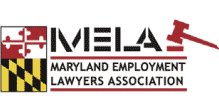Recent Blog Posts
5 ways to start building your sexual harassment case
Despite extensive efforts to curtail it, sexual harassment continues to plague Maryland workplaces. This behavior can make a worker feel uncomfortable, threatened, and even endangered. No one deserves to go through that in their workplace.
Making matters worse, though, is the fact that those who report sexual harassment often end up being retaliated against by their employers. As a result, sexually harassed workers can be reassigned, demoted, subjected to reduced hours, or terminated as a result of denying unwanted sexual advances or reporting unacceptable behavior.
If that's happened to you, then you need to find a way to hold your employer accountable while recovering compensation for the harm that's been caused to you. But figuring out where to start can be tough. That's why we want to spend the rest of this post looking at what you can do to position your sexual harassment or retaliation legal claim for success.
What can I do if I am not being paid overtime?
An opportunity to work overtime is something many Maryland employees take advantage of. Maryland law allows most workers to receive 1.5 times their usual hourly wage in overtime, which is defined as any hours worked over 40 in a regular work week.
The term "wages" has various definitions beyond your hourly rate. Bonuses, commissions, tips and fringe benefits are all considered wages that your employer must legally pay you if you are entitled to them.
There are also many different activities that could constitute work. The definition of work is a service performed by an employee at the employer's request, under the employer's control and on the employer's time.
You are not required to perform or accomplish anything to be considered working. If you show up to a job on time and your employer tells you to do nothing for a few hours, you are still considered working and entitled to your hourly rate and any overtime if it applies.
Can my criminal record be held against me?
You are probably familiar with some of the more common types of workplace discrimination, such as those based on race, religion, sex or ethnicity. However, what happens if you believe you are being discriminated against because of your criminal background?
Many jobs today conduct background checks on prospective employees. These background checks often include reviewing a job candidate's criminal history. This could include criminal convictions, arrests or both.
In some cases, yes it can
These background checks are not illegal. In fact, there are some laws that state people with certain types of criminal records cannot be hired for certain jobs, which makes these background checks necessary.
However, the law forbids employers from treating employees with criminal records differently based on their race or natural origin.
Additionally, criminal history policies that are overly broad could be deemed illegal if it is determined that they unfairly exclude certain people or fail to accurately predict who will be a safe and responsible employee.
Age discrimination still all-too-common in the workplace
In 1964, Congress passed the Civil Rights Act, which among other things prohibited discrimination in the workplace on the basis of race, color, religion, sex or national origin. Just three years later, Congress passed the Age Discrimination in Employment Act, which prohibited discrimination in the workplace on the basis of age for those aged 40 or older.
As we all know, discrimination on the basis of race, color, religion, sex and national origin has continued despite the law. However, most employers and workers are at least somewhat aware of these protections. By contrast, age discrimination appears to be little understood even today, nearly 60 years after the passage of the ADEA. It's also apparently widespread in American workplaces.
Widespread discrimination
According to a recent AARP survey, over 40% of American workers age 40 and over say they had been discriminated against because of their age within the past three years. A similar number reported that their age is their primary concern when they are looking for work.
When should you settle your employment law claim?
Some employment law cases, like those pertaining to retaliation, wrongful termination, and discrimination, end up heading to trial, but most of these cases end up settling before they get to that point. There are several reasons for this. Employers oftentimes want to avoid the bad publicity created by prolonged litigation, and they might expect to save money by settling rather than paying extensive legal fees and risk being subjected to a larger judgment at trial.
Although you might be tempted to resolve your case sooner rather than later, you should only do so if it's truly in your best interests. But how do you know if that's the case?
Signs that it's time to settle your employment law case
Settlement isn't right for everyone. In fact, depending on the facts of your case, you might recover more compensation by taking your case to trial. But here are some signs that you might be in a position to settle your case:
The alarming pervasiveness of workplace sexual harassment
While one month (April) is set aside for National Sexual Assault Awareness Month, - discrimination against women based on their gender identity, sexual orientation, and pregnancy at work remains a clear and present danger every month of the year.
A previous EEOC report from 2016 reveals that workplace harassment largely goes unreported, with statistics revealing 90 percent of victims do not take formal action or formally pursue their complaints. What is most alarming is that these types of charges were only two years following the high-profile #MeToo movement.
Alarming data
From 2018 to 2021, the EEOC documented almost 99,000 charges of alleged harassment, with more than 27,000 of those incidents involving sexual harassment. That year and each consecutive year saw an increase from the previous twelve months. Most alarming was the data that revealed more than 35 percent of documented harassment incidents.
To say that women file disproportionate charges would be an understatement. A total of 78.2 percent of sexual harassment claims were filed by women from 2018 to 2021. Out of the 98,000-plus in total harassment charges, women filed more than 62 percent of them.
Whistleblower protections for federal employees
A host of state and federal laws protect workers from retaliation after they have reported wrongdoing at work. This true for workers in the private sector as well as workers in the government, but the protections for federal employees are somewhat different and they have a separate system under which they can protect their rights.
How do you report retaliation in the private sector?
For employees in the private sector, the procedure for reporting retaliation can depend on the exact laws at issue in the case.
For example, let's say a worker at a manufacturing company lawfully reported unsafe working conditions to the Occupational Safety and Health Administration (OSHA). This angered their employer, who retaliated against them by cutting their hours. This is illegal retaliation.
The worker can then report this retaliation to OSHA, which can investigate. In fact, OSHA investigates retaliation claims involving not just the Occupational Safety and Health Act, but also the Clean Air Act, the Safe Drinking Water Act, the Affordable Care Act, the Consumer Financial Protection Act and many more. Importantly, the deadlines for reporting retaliation depend upon which statute is involved. A worker has 180 days to report a violation under the Affordable Care Act, for example, but just 30 days to report a violation under the Clean Air Act.
Signs that you're being subjected to disability discrimination
Your disability might make your life harder than you want it to be, but it shouldn't impact your enjoyment of equal employment opportunities. This means that you should be treated fairly throughout every step of the employment process, from hiring and promotion, to pay and discipline.
Yet, all too often employers discriminate against workers with disabilities. When they do, disabled workers might suffer not only emotional strain, but also financial loss and damage to their careers.
You don't want that to happen to you, as it could have long-term consequences that leave you at a financial and career disadvantage.
That said, a lot of workers who are treated unfairly struggle to identify if they've actually been discriminated against. That's why this week on the blog we want to look at some of the signs that you've been discriminated against based on your disability.
Red flags of disability discrimination in the workplace
There are several signs that disability discrimination might be occurring in your workplace. Here are some of them:
D.C. Voters Approve Ballot Initiative to Increase the Minimum Wage for Tipped Workers
On November 8, 2022, District of Columbia voters approved ballot Initiative 82 ("I-82") aimed at increasing the minimum wage paid to tipped employees. Over the next four years, I-82 seeks to gradually increase the minimum wage for tipped workers in Washington D.C. - until there is a single minimum wage rate for both tipped and non-tipped employees. I-82 attempts to address the wage gap faced by tipped workers by phasing out the tipped minimum wage entirely.
On May 1, 2023, I-82 officially goes into effect and immediately increases the D.C. minimum wage for tipped employees from $5.35 to $6.00 an hour. On July 1, the D.C. minimum wage for tipped workers will again increase to $8.00 an hour. Most critically, the overall D.C. minimum wage will increase at the same time from $16.10 to $17.oo an hour. By July 2027, the D.C. tipped minimum wage rate will be eliminated, and all hourly employees must receive the same pay.
Please contact Freedman Law, LLC, if you have questions regarding your rights in the workplace.
Back pay can quickly add up in a wrongful termination claim
Unless a worker in Maryland is under an employment contract or is part of a union with a collective bargaining agreement, they are likely employed "at will." Employers in at-will states can let an employee go for almost any reason, even reasons that might seem arbitrary or unfair.
However, the right to fire an employee at will is not unfettered. Employers in Maryland cannot terminate an employee if doing so would violate public policy. If an employer fires an employee in violation of public policy, the employee might have a claim for wrongful termination and could seek damages, including back pay.
What violates public policy?
There are a variety of circumstances in which a termination violates public policy.
Firing an employee in violation of state or federal law violates public policy. State and federal law hold that employees in legally protected categories such as race, sex and religion cannot be fired for discriminatory reasons. A discriminatory firing violates public policy and could form the basis of a wrongful termination lawsuit.













